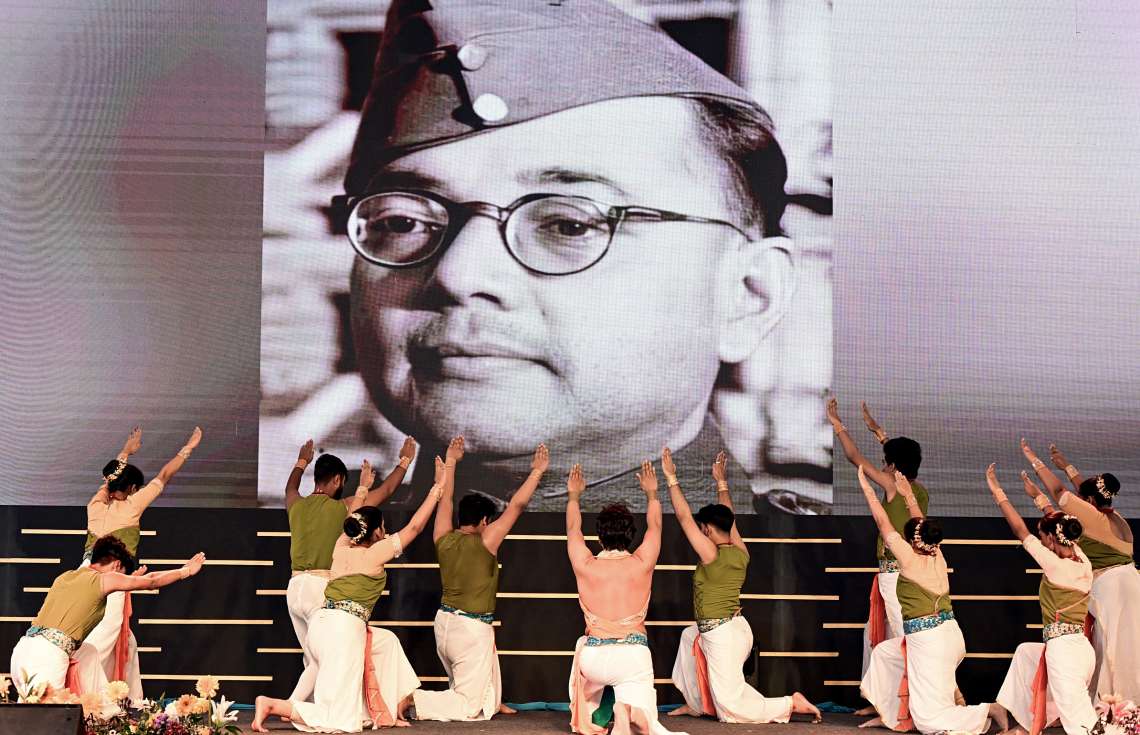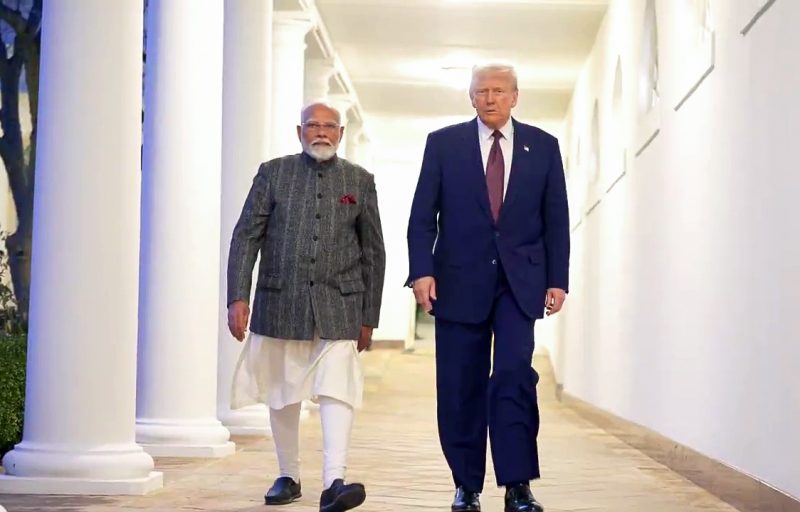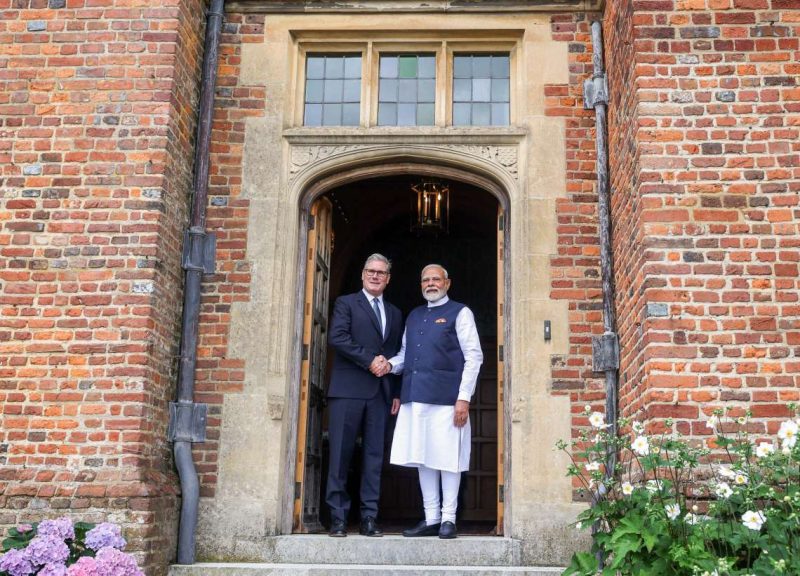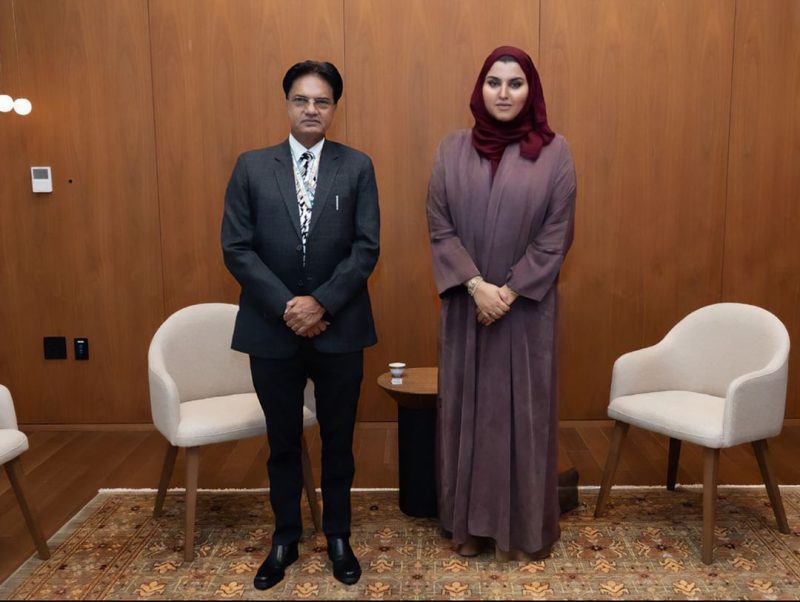Today, 78 years after India gained independence in 1947, Bose remains physically separated from the country he fought to free. The Indian government has in the past considered repatriating his remains, but political sensitivities, coupled with lingering doubts about the exact circumstances of his death, have kept the matter unresolved…reports Asian Lite News
As India marked the 80th death anniversary of Netaji Subhas Chandra Bose, one of the nation’s most revered yet controversial freedom fighters. Eight decades after his reported death in a plane crash in Taiwan, Bose’s mortal remains continue to lie in a Buddhist temple in Tokyo, far from the land he devoted his life to liberating.
The year 1945 was decisive for both world history and India’s struggle for freedom. The Second World War drew to a dramatic close when the United States dropped nuclear bombs on Hiroshima and Nagasaki, forcing Japan to surrender. For India, this collapse meant the end of Japanese support for Bose and his Indian National Army (INA), which had sought to overthrow British rule by armed struggle.
On 15 August 1945, Emperor Hirohito announced Japan’s surrender over national radio. Two days later, Bose boarded a Japanese military aircraft in Saigon, intending to fly to Tokyo and possibly seek asylum elsewhere. During a stop-over at Taipei on 18 August, the aircraft reportedly crashed on take-off after losing an engine. Bose suffered severe burns and, according to hospital records and eyewitnesses, died later that same day. He was cremated in Taipei, and his ashes were subsequently transported to Tokyo.
Since then, the Renkoji Temple in Tokyo has been the custodian of Bose’s remains. What was meant to be a temporary arrangement at the request of the local Indian community has stretched into nearly eight decades. Three generations of priests at the temple have safeguarded the ashes, honouring the memory of the man known as Netaji – “Respected Leader” – among his followers.
Yet Bose’s resting place abroad remains a source of unease and disappointment for many Indians. The nationalist leader had often spoken of his fear of exile, once declaring that he “abhorred” the idea of being cut off from his homeland. His life was marked by cycles of imprisonment, escape, and exile, first in Europe and later across Asia. Although he slipped out of India in 1941 to rally international support for independence, he never returned alive.
Today, 78 years after India gained independence in 1947, Bose remains physically separated from the country he fought to free. The Indian government has in the past considered repatriating his remains, but political sensitivities, coupled with lingering doubts about the exact circumstances of his death, have kept the matter unresolved.
For decades, conspiracy theories have clouded the official version of events. Some of Bose’s admirers refused to believe he perished in the 1945 crash, insisting instead that he survived and lived in secrecy. Multiple commissions of inquiry have examined the case, but none have produced definitive evidence to disprove the crash narrative. The Renkoji ashes, therefore, remain both a sacred relic and a point of contention.
On the occasion of his 80th death anniversary, Bose’s daughter, Anita Bose Pfaff, has renewed her appeal for her father’s mortal remains to be brought home. “As Netaji’s daughter I invite the Indians of today who still remember him and respect him to support his posthumous return from exile,” she said. “It is time to transfer his remains to India for a final disposal.”
Supporters of repatriation argue that bringing Bose’s ashes back would provide closure to a long and painful chapter in Indian history. They contend that the leader who galvanised thousands to join the INA and inspired countless others with his slogan of “Give me blood and I will give you freedom” deserves to rest in the soil of his homeland.
However, the debate is not without complexities. Some critics caution that reopening the question risks reigniting old divisions over Bose’s wartime alliances with Japan and Nazi Germany. Others point out that successive governments, wary of both domestic controversies and diplomatic sensitivities with Japan, have preferred to leave the matter undisturbed.
Nevertheless, the emotional pull of Bose’s story remains powerful. Across India, he is remembered as a fiery patriot who challenged the might of the British Empire with unmatched courage. Statues, institutions, and streets bear his name, and his legacy continues to inspire generations.
As India prepares to commemorate his 80th death anniversary, the paradox endures: one of the country’s greatest national heroes still lies in exile, his remains resting under foreign skies. Whether the coming years will finally see his ashes returned to Indian soil remains uncertain. But the call made by his daughter underscores a sentiment that many share – that Netaji Subhas Chandra Bose should, at last, come home.










